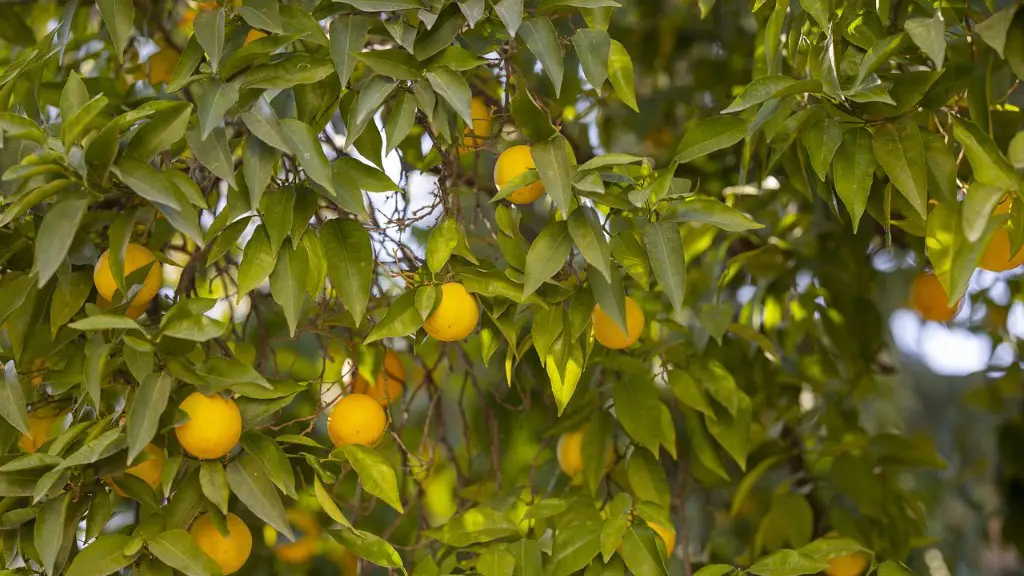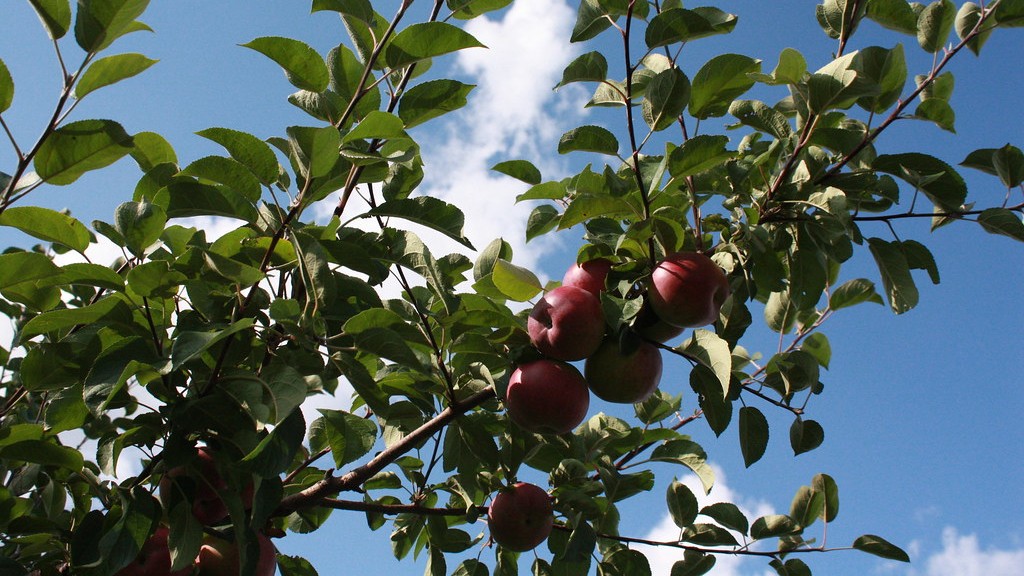How to make lemon tree bear fruit faster
Fruit growing can be a rewarding and often painstaking process. Growing lemons can be especially tricky due to their specific requirements and nutritional needs. Adding an extra boost to the growth cycle can help ensure healthier and more plentiful crops. Here are some top tips for ensuring your lemon tree produces fruit faster.
Watering is key for successful fruit production; regular watering helps trees absorb vital nutrients. Drip irrigation is a method which applies water slowly and thoroughly to the soil, encouraging healthy growth. Make sure to allow the lemon tree’s root system to access these nutrients by keeping the soil loose and avoiding excessive compaction.
Manure and compost are great additions for lemon trees, as their high nitrogen content provides the plant with essential minerals. Regular applications every four to six weeks will result in more ample crops in a shorter period of time. Sunlight is also essential for lemon tree health, so choose a spot which gets plenty of sunshine.
When it comes to picking the right fertilizer, there’s no one-size-fits-all solution; check the label and choose one specifically designed for citrus plants. For even more control, try supplementing your fertilizer applications with micronutrient powders such as iron and zinc, which help maximize plant yield.
Pruning your lemon tree properly can also help to speed up fruit production. Pruning off unhealthy or dead branches helps the tree focus energy on strong, healthy growth. Managing pests and diseases is also important; stay on top of these problems by regularly inspecting your lemon tree and addressing any issues swiftly.
By following these steps, you can ensure your lemon tree bears fruit faster. With the right environment and care, you could be enjoying your own lemon crop in no time.
Watering is essential
Watering is essential for successful fruit growth. It is important to water frequently and consistently to ensure the lemon tree absorbs the necessary nutrients for growth. Drip irrigation is an effective method for accomplishing this, as it ensures the soil is not compacted and the plant’s root system can access the water without saturation. Regular watering will ensure healthier and more plentiful crops.
It is also helpful to add manure and compost to the soil. This will give your lemon tree a boost in minerals and nitrogen, which are necessary for abundant fruit production. Make sure to apply these treatments every four to six weeks for best results.
Finding a good spot for your lemon tree is also key. Sunlight is necessary for optimal growth, so make sure your lemon tree is planted in a spot which gets plenty of sunshine throughout the day. This will help the tree reach its full fruiting potential.
Overall, watering is essential for your lemon tree’s success. Simply put, the better care you take of your tree, the better the fruit will be.
Fertilizers and micronutrients to boost growth
Fertilizers are vital when it comes to fruit growth. Choose a fertilizer specifically designed for citrus plants, as they will contain the necessary nutrients for lemon tree growth. As an added bonus, you can supplement your fertilizer treatments with micronutrient powders such as iron and zinc, which are great for increasing yield.
Micronutrients are especially beneficial because they help optimize plant growth. Iron and zinc, for example, are extremely helpful for plants experiencing a nutrient deficiency, as they can supplement existing treatments and boost overall growth. This is especially important for lemon trees, which require a lot of nutrients to produce abundant crops.
Fertilizers and micronutrients are great for supplying the lemon tree with all the necessary nutrients it needs. These treatments are easy to apply and only need to be done every 4-6 weeks, ensuring plentiful crops in a short period of time.
The right fertilizer, combined with an adequate supply of micronutrients, will help ensure your lemon tree produces more fruit and grows more quickly.
Pruning for healthy growth
Pruning is a great way to maximize a lemon tree’s potential. Pruning off weak or dead branches helps the tree focus its energy on healthy new growth, ensuring abundant crops.
It is important to prune regularly and selectively. Make sure you are only pruning branches which are unaffected by diseases or pests, as pruning unhealthy branches can cause further damage to the tree. Pruning should be done carefully and slowly, paying special attention to branch positioning and symmetry.
Pruning also helps with pest management. Regular inspections of the tree will help identify and address minor pest issues before they become a major problem. It is also beneficial to apply insecticides or fungicides to keep pests at bay.
Overall, pruning is a great way to ensure your lemon tree remains healthy and vibrant. It encourages the tree to focus its energy on healthy growth, promoting plentiful fruit production.
Ways to protect your trees
Protecting your lemon tree against pests and diseases is key. Regular inspections of the tree will help you identify any potential issus and address them swiftly. Applying an appropriate insecticide or fungicide can also help prevent infestation and disease.
It is also important to monitor the tree for signs of stress. Low humidity levels, for example, can be particularly detrimental to citrus trees and can cause the leaves to shrivel or yellow. Make sure your tree does not experience any extended periods of water stress and ensure its root system is constantly moist.
Protecting your lemon tree from environmental factors such as wind, cold, or heat also helps with fruit production. Choose a sheltered spot for your tree so that it is not exposed to extreme weather conditions. This will help ensure the tree stays healthy and strong.
By monitoring and protecting your lemon tree, you can ensure it remains healthy and produces abundantly. With the right care and attention, you can enjoy your own home-grown lemons in no time.
In conclusion
Growing lemons is a great way to reap the rewards of fruit growing. It can be tricky process due to the lemon tree’s specific requirements, but with the right approach, you can ensure your tree bears fruit faster. Watering, adding manure and compost, applying fertilizer treatments and micronutrients, pruning, and protecting the tree against pests and environmental factors are all methods for achieving this.
Following these simple steps will ensure your lemon tree produces a healthy and ample crop. With the right environment and care, you will soon enjoy the taste of your own home-grown lemons.


